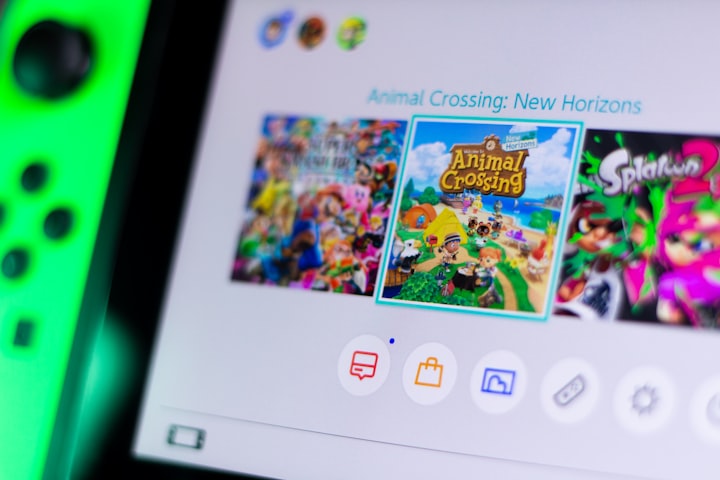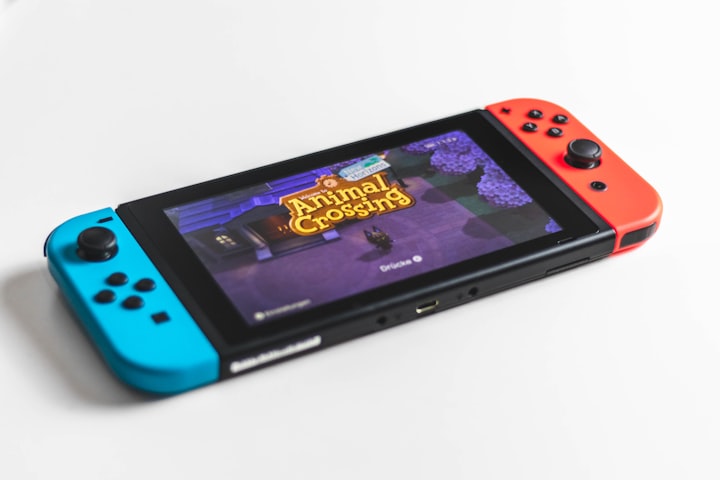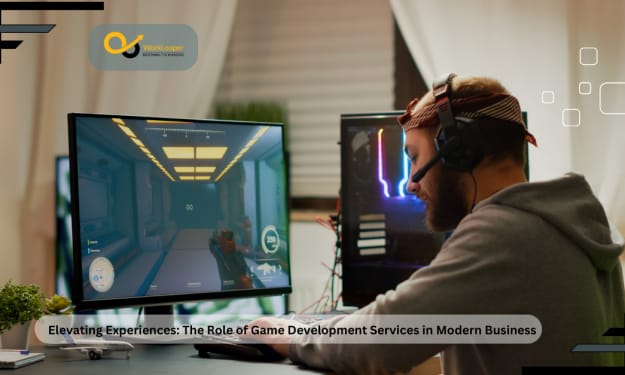Soothing the Soul, Escaping the Noise
Animal Crossing is still the perfect antidote to an increasingly frantic world

Video games are, in essence, designed to allow the player to escape normality. Whether you’re talking about the scope, score, and story of RPGs such as Skyrim or Bloodborne, creative sandbox games such as Minecraft or even the rigidity and pace of Tetris — each time we load up, we are rewarded with a break from everyday life.
Some games aim to put you at ease, such as 2018's Gris, where players navigate a peaceful watercolour platformer to get a young woman’s voice back. Everyone’s old favourite, The Sims, most certainly had a hand in popularising the ‘life simulation’ genre and depending on what sort of ‘motherlode-ing’ god you were, many online lives were played out in relative bliss.
But none quite fit the bill like Animal Crossing. The series, officially termed a “social simulation video game” was first released in 2001 for the Nintendo 64 exclusively in Japan, then re-released for the GameCube. Over the subsequent 18 years, Animal Crossing would go grace the DS, Wii, 3DS, mobile, and then the Nintendo Switch — with the entire franchise selling over 30 million units in total.
The main joy of Animal Crossing, aside from its colourful, customisable designs and charming anthropomorphised characters is that it's an open-ended game: there are no defined objectives. Instead of following over-arching storylines or being forced to complete a myriad of side-quests in order to continue the game, players are encouraged to forge their own path as the town mayor and cultivate their experience as they see fit. You can chat to villagers and form friendships with them, potter around your house and fish to your heart's content. Animal Crossing offered players something strangely unique, which is the opportunity to truly “escape” into a game that mimics the outside world but softens the edges.
With its playful aesthetic and chill-pop soundtrack (the loading theme is the aural equivalent of cotton wool), Animal Crossing did something that not many games have perfected since - which is to simply exist as a calming outlet.

My first encounter with Animal Crossing: Wild World (which turns fifteen this year) was back in 2006, shortly after it was released in the UK. I had just turned nine and was gifted a brand-new silver Nintendo DS Lite, to go along with my collection of Dr. Kawashima’s Brain Training, Cooking Mama and Nintendogs. I’d missed out on the Game Boy sensation a few years earlier, enviously watching friends receive the pastel-pink console and coveted Disney Princess cartridge, so this was my first proper system. And I loved it.
I bought Wild World soon after. It was also around this time that my very first serious symptoms of anxiety began to show themselves. I had an unhealthy fixation with time, religiously watching the clock whenever possible and becoming incredibly stressed when things ran just a few minutes out of ‘schedule.’ This would worsen over the years, manifesting itself in watchless wrists, reeling catastrophic thoughts, exhaustion, patchy lash-lines, digestive issues and eczema. Nothing could calm me down. My brain would overboil, melt and feel like it was dripping out of my ears. On good days, the static felt like a mild simmer.
But Animal Crossing dampened the noise. Even now I can remember the process of opening my DS with a sure click, loading the game up (I barely swapped out that card) and the all-too-familiar banjo theme-tune whirring to life.
My village was called Starville. I had a big house with a pink roof, a plot of meticulously kept flowers that were watered religiously and picked peaches from my trees. Using the brand-new (and now defunct) Nintendo Wi-Fi Connect feature, I would visit my friends’ villages and bring back as many different fruits as I could to plant and grow into trees, which I would then sell to Tom Nook for extra cash.
Admittedly, I cheated the game somewhat. My best friend at the time had a ‘jailbroken’ card that allowed her to spawn as many Bells as she liked, and in an act of kindness that only nine-year-olds playing video games would be willing undertake, she gave me a million of them.
It is likely the first and only time I will ever pay off a mortgage: fictional or otherwise.

My life in Starville was quaint. It was also regimented and organised in a way I craved in real life. I’d boot up, get yelled at by Ressetti because I could never be bothered to save when leaving Animal Crossing’s digital world for my own (this was one of the few aspects of the game that triggered my anxiety, actually; the other being chased and stung by bees).
I’d pick my fruit. Sell it to Tom Nook in his fancy department store that still mostly sold crap. Pop in to see my ‘friends’ Goldie the dog and Tabby the cat, where I usually ended up gathering shells or doing some other vapid errand in exchange for a random bit of furniture. Evenings were spent collecting messages-in-bottles from other players — I remember getting some really weird ones — or ambling around the museum looking at fish and insects I’d donated to Blathers the Owl when he wasn’t sleeping.
Finally, I’d go into the museum’s basement, order a cup of the house-blend coffee from Brewster (feeling incredibly grown-up) and on Saturdays, between 8pm and midnight, watch KK Slider perform his set.
The strange thing is how clearly these recollections come to me. Admittedly, gaming was not a huge part of my childhood, as most of my experiences came from other people’s consoles — LEGO Star Wars on Michael’s PlayStation, Oblivion on Jess’s dad’s computer — but Animal Crossing was special: it was all mine.
Starville, my made-up town, is still very much the same now as it was then. During a recent anxiety flare-up, I instinctively dug out my DS Lite, powered up the old file and took a walk around the neighbourhood.
The town is a kind of relic nowadays. My pink-roofed house is strangely decorated, with bright orange walls in the kitchen and a watermelon table. The bathroom doesn’t have a toilet but houses a small collection of creaking gyroids (the weird clay cactus-things that make noises) and the whole place is crawling with cockroaches.
Townsfolk, as they are programmed to do, have come and gone after such a long period of time. Goldie has left, as has Tabby.
I look at the old clothes I’d designed in Able Sisters and gander at the same bits of stationary Tom Nook has been trying to sell for the past ten years. I think about getting a fictional coffee but decide against it, suddenly put-off at the prospect of being stuck in a basement.
Instead, I go to the beach. Listen to the pit-pat-squelch sound my character’s feet make in the sand and pick up a shell or two. The sound of a virtual sea tumbles out of the speakers. It’s wonderful.
Even though my world within Animal Crossing seems smaller than it ever was — even verging on the point of being painfully simplistic — it still offers the same respite it did all those years ago.
The opportunity to switch off, load up, and escape into a calming space that allows the player to freely (but safely) explore is something often overlooked as developers strive for bigger and better.
But despite the rise of first-person shooters, over-arching narratives and quest-busting, people still love to re-enact the ordinary inside an extraordinary world. Animal Crossing is the perfect remedy to soothe the effects of an often busy, stressful world.
About the Creator
Lauren Entwistle
Girl wonder, freelance journalist and writer-person. Also known as the female equivalent of Cameron Frye from the 1989 hit, "Ferris Bueller's Day Off.'






Comments
There are no comments for this story
Be the first to respond and start the conversation.